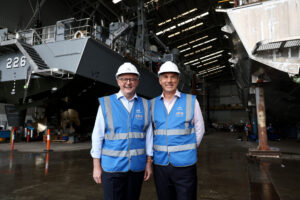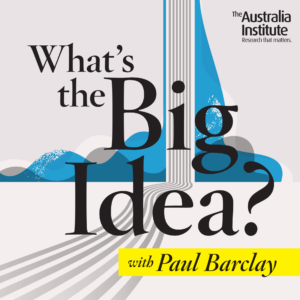On ANZAC Day we remember lives lost in the strategic failure that was Gallipoli – a salute to Churchillian hubris and a newly emerged ex-colony only too keen to prove itself in defence of the “mother country” and her Empire.
On this ANZAC Day, we prepare ourselves for another strategic failure, just as we did in 1973 when the last of Australia’s military personnel had gone from Vietnam. Yet “all the way with LBJ” – more accurately rephrased these days as “all the way with the USA” – has continued to underpin Australia’s defence policy, as we contemplate yet another strategic failure in Afghanistan when we finally withdraw Australian forces in just a few months’ time.

When the speeches about fighting for freedom and a job well done and the sombre references to sacrifice and valour finally run their course, the abject failure of 20 years in Afghanistan will weigh heavily on those who constituted “the coalition of the willing”. Like Vietnam and Iraq, Afghanistan demonstrates once again that military power cannot and does not prevail over the deep social and cultural forces that constitute a people’s character and identity. And like the Viet Cong, the Taliban have displayed the endurance, resolution and single-mindedness that makes nationalism so intractable a problem for conventional military forces.
From the beginning, the “war” in Afghanistan was misconceived. Terrorism, for all its violence and criminality, is not amenable to military solutions and cannot be defeated by military force. Yet the default position of the US – along with Australia, Britain and the other NATO partners – is to securitise and militarise problems that arise where competing cultural, religious and social forces intersect. As American psychologist Abraham Maslow said, “It is tempting, if the only tool you have is a hammer, to treat everything as if it were a nail.”
The fact that governments have military forces available on a 24/7 basis does not mean that complex problems are best dealt with by the most readily available resources.
It is easy to misapply the word “war”, and to imagine it lends intelligibility to dealing with problems such as poverty, drugs or homelessness. To describe terrorism as “asymmetric warfare” is neither to describe it accurately nor to explain it adequately: it is “alternative” rather than “asymmetric” and “destabilisation” rather than “warfare”. Where the fundamental political dynamics of a problem are so misconceived, it is little wonder that a successful strategy is beyond the reach of even the most competent military planners.
Australia will withdraw from Afghanistan with nothing to show for two decades of deployments and over $10 billion of investment. For all the solemn intonation of “fighting for liberty”, “eradicating terrorism” and “defending democracy”, 41 Australians gave their lives for no strategic benefit to Australia or Afghanistan, and our nation exits in disgrace due to the allegations of war crimes committed by a criminal few.
Like Vietnam, one of Australia’s darker legacies in Afghanistan will be the fate of the many civilian Afghans who have worked for and supported the Australian Defence Force for two decades: translators, drivers, cleaners, blue and white-collar workers, and the Afghani civil servants who have worked closely with the coalition forces. Australia’s record in Vietnam was abysmal – we simply left the locally engaged staff to their own devices, with many enduring long periods of “re-education” in internment camps. Some, of course, made it to Australia as boat people and were welcomed by the Fraser government. But it should never have come to that.
This ANZAC Day, the government has the chance to make amends. It should make early provision for those who have faithfully supported Australia’s military efforts, albeit in vain. While it is fitting that we remember those who have died and suffered in the military service of the nation, we should resist the temptation to create a mythic national identity based simply on the military qualities of suffering, sacrifice, bravery and endurance. Australia needs to recognise that our identity is a dynamic thing, forged from our compassion, forgiveness, generosity, inclusion, reconciliation and resilience. These are the legacy and lessons of ANZAC Day. Lest we forget.
Between the Lines Newsletter
The biggest stories and the best analysis from the team at the Australia Institute, delivered to your inbox every fortnight.
You might also like
Australia does not need an increase in spending on the military
Right now, the government and the opposition are moving to increase the amount the government spends on its military aka its defence budget, and this is happening without the public having any say – nor any great choice in the upcoming election.
You know what’s more idiotic than a photo op? Walking blindly into the AUKUS pact
There was a lot of hysteria over the symbolism of former premier Daniel Andrews’ photo op with assorted dictators at a Chinese WWII military ceremony, but precious little discussion or analysis of the so-called threats to Australia’s security.
Australia has power, why don’t we act like it? | Allan Behm
In a world of uncertainty, it is more important than ever for Australia to stop dismissing ourselves as a ‘middle power’ and start exerting our influence on the global stage.

